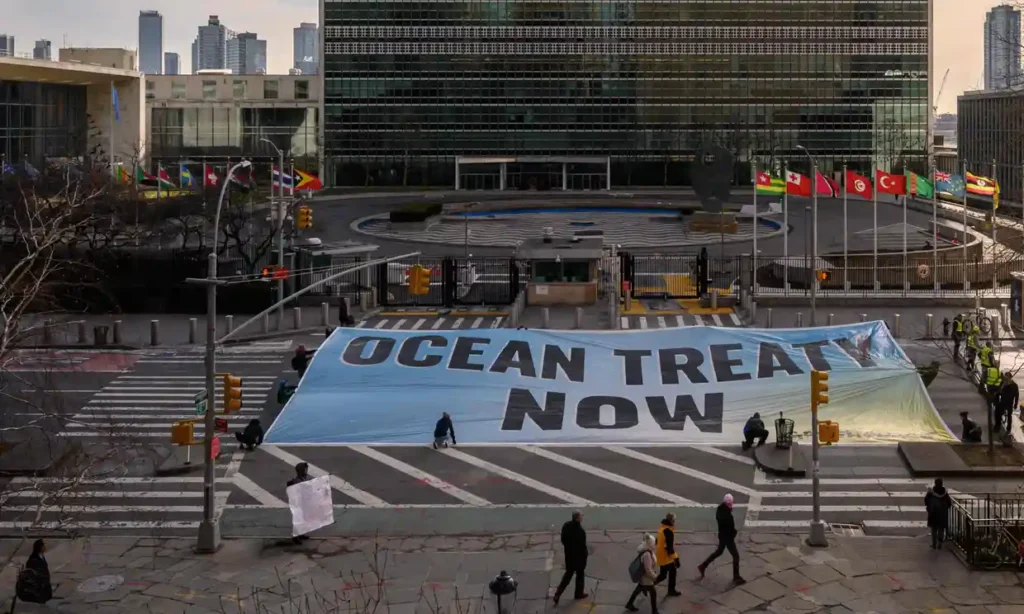A landmark ocean agreement to govern the world’s high seas moved a step closer to reality on Friday as Morocco became the 60th country to sign the treaty, the first international legal framework designed to protect marine biodiversity in waters beyond national jurisdiction.
The treaty covers nearly two-thirds of the ocean, an expanse that makes up almost half of Earth’s surface. Long vulnerable to overfishing, deep-sea mining, and the accelerating effects of climate change, these international waters have until now existed in a governance vacuum.
“The high seas are the world’s largest crime scene,” said Johan Bergenas, senior vice president of Oceans at the World Wildlife Fund, underscoring the urgency of global cooperation.
A Fragile Victory
While momentum is building, the treaty’s effectiveness remains uncertain. Some of the biggest ocean powers — including the United States, China, Russia, and Japan have not yet ratified. Both the U.S. and China have signed, signaling intent but without binding obligations, while Russia and Japan have engaged in negotiations without committing.
Ratification by 60 countries activates a 120-day countdown for the treaty to formally take effect. From there, the focus shifts to questions of implementation, financing, and enforcement challenges that experts say will determine whether the pact can live up to its promise.
Lisa Speer, director of the Natural Resources Defense Council’s international oceans program, stressed the global stakes. “Marine life doesn’t respect political boundaries. Fish, turtles, seabirds — they migrate across the ocean. What happens in the high seas directly affects the health of coastal waters,” she explained.
Protecting the Planet’s Blue Heart
The treaty is central to advancing the global “30×30” pledge, which aims to safeguard 30 percent of the planet’s land and sea by 2030. It introduces a legal pathway for countries to establish marine protected areas in international waters, regulate risky activities such as geoengineering and seabed exploitation, and foster collaboration in marine science and technology.
Key decisions will be taken multilaterally at Conferences of the Parties (COPs), with the first scheduled within a year of the treaty’s entry into force. Only ratifying nations will have voting rights at COP1, giving early adopters like Morocco greater influence in shaping the rules of the ocean.
However, the treaty lacks a central enforcement body, relying instead on individual countries to regulate their own fleets and industries a weakness that critics warn could undermine its reach if major powers remain outside.
A Race Against Time
The high seas are essential for life on Earth, absorbing vast amounts of carbon dioxide, regulating climate, and generating half the oxygen humans breathe. Scientists and campaigners argue that failure to secure these waters could have cascading effects on national jurisdictions and coastal ecosystems alike.
The signing by Morocco marks an important milestone, but the real test will come as nations decide whether to ratify and how vigorously they will act to enforce protections. As Bergenas and other conservationists emphasize, the oceans’ fate and humanity’s with it depends on what happens next.


